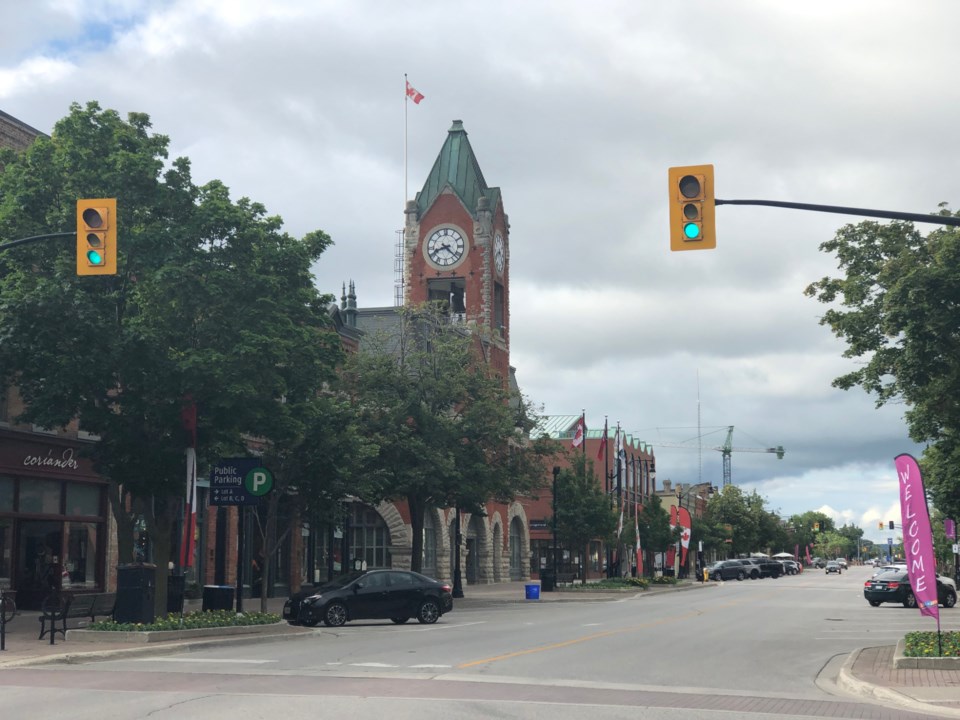Hate symbols will be on the agenda again for Collingwood council this week.
Staff have created a list of actions for council to consider, most of which are intended to focus on community inclusivity and diversity. But the report also seeks to answer a question asked by council: what can the town do to prohibit the public display of symbols of hate and racial intolerance?
The question was raised during a council meeting in June when several residents called on the town to ban symbols of hate, in particular, the Confederate flag. Earlier this year, a Confederate flag was on display outside a home on Ninth Street. It has since been removed from the front of the house.
Council is holding a special meeting on July 29 to revisit the discussion.
But according to a staff report prepared for the meeting, the town may have trouble outright banning symbols of hate.
Part of the challenge is that there is no definition of hate speech in the Charter of Rights and Freedoms, or the Criminal Code of Canada, which speaks more to “incitement” of hate, than it does hate speech.
Dean Collver, executive director of corporate and customer service for the Town of Collingwood, authored the report.
“The public display of symbols that are, even incidentally, reflective of hate speech and racial intolerance have no place in a compassionate community,” noted Collver in his report. “However, the ability of a municipality to remove such items from private spaces is currently limited by the Canadian Charter of Rights and Freedoms.”
The charter states everyone has fundamental freedoms including freedom of thought, belief, opinion and expression.
Flying the Confederate flag can fall into that definition.
“Because of the limits to municipal authority, it is very likely that efforts made by the municipality to affect change would be deemed ‘ultra vires’ or beyond the powers of the municipality,” noted Collver in his report. “It is the advice of staff that a challenge being taken on with this action is likely insurmountable.”
Collver did have town lawyers to weigh in on the matter.
Though a charter challenge may be “insurmountable,” staff did make other suggestions, including a change to the sign bylaw.
The report stated a gap in the current bylaw could be closed by adding a clause giving the town the power to remove a sign or decoration that contains profanity or obscenity or another message that is deemed offensive or discriminatory under the Ontario Human Rights Code and/or the Canadian Human Rights Act.
Collingwood is a member of the Federation of Canadian Municipalities (FCM), which lobbies the federal government on behalf of municipal governments in the country. Part of the recommendations included in the July 29 agenda suggests councillors ask FCM to get involved in advocating for stronger hate speech laws and a formal definition of hate speech.
Staff are recommending the town becomes a member of the Coalition of Inclusive Municipalities, which is part of UNESCO.
The report also recommends actions and changes to policies in order to remove bias and tackle systemic racism and intolerance.
The report suggests the formation of a “gathering circle dialogue group” made up of a cross-section of Collingwood’s population, including racialized communities.
Though the exact terms for the gathering circle aren’t proposed, the idea behind the group is to be an arms-length group bringing actions to council to “acknowledge and empower the strength of a diverse community.”
Finally, staff also suggest council consider a Municipal Charter of Human Rights. Montreal is the only city in Canada to have one, and according to staff its a large undertaking.
“Staff feel that this approach fits with the innovative spirit within the municipality,” stated Collver in his report.
The report will go to council on July 29 for a special meeting starting at 5 p.m.
